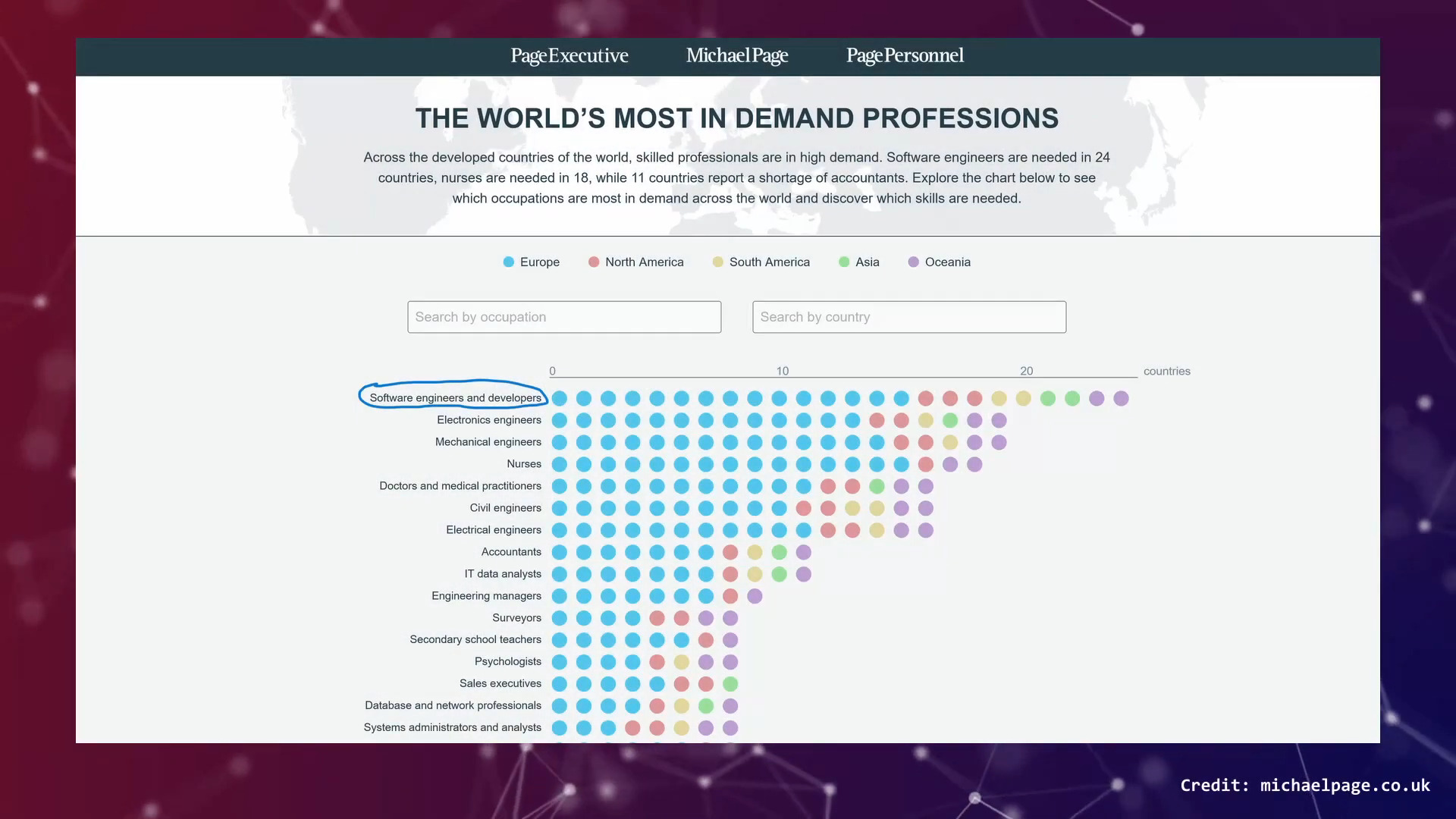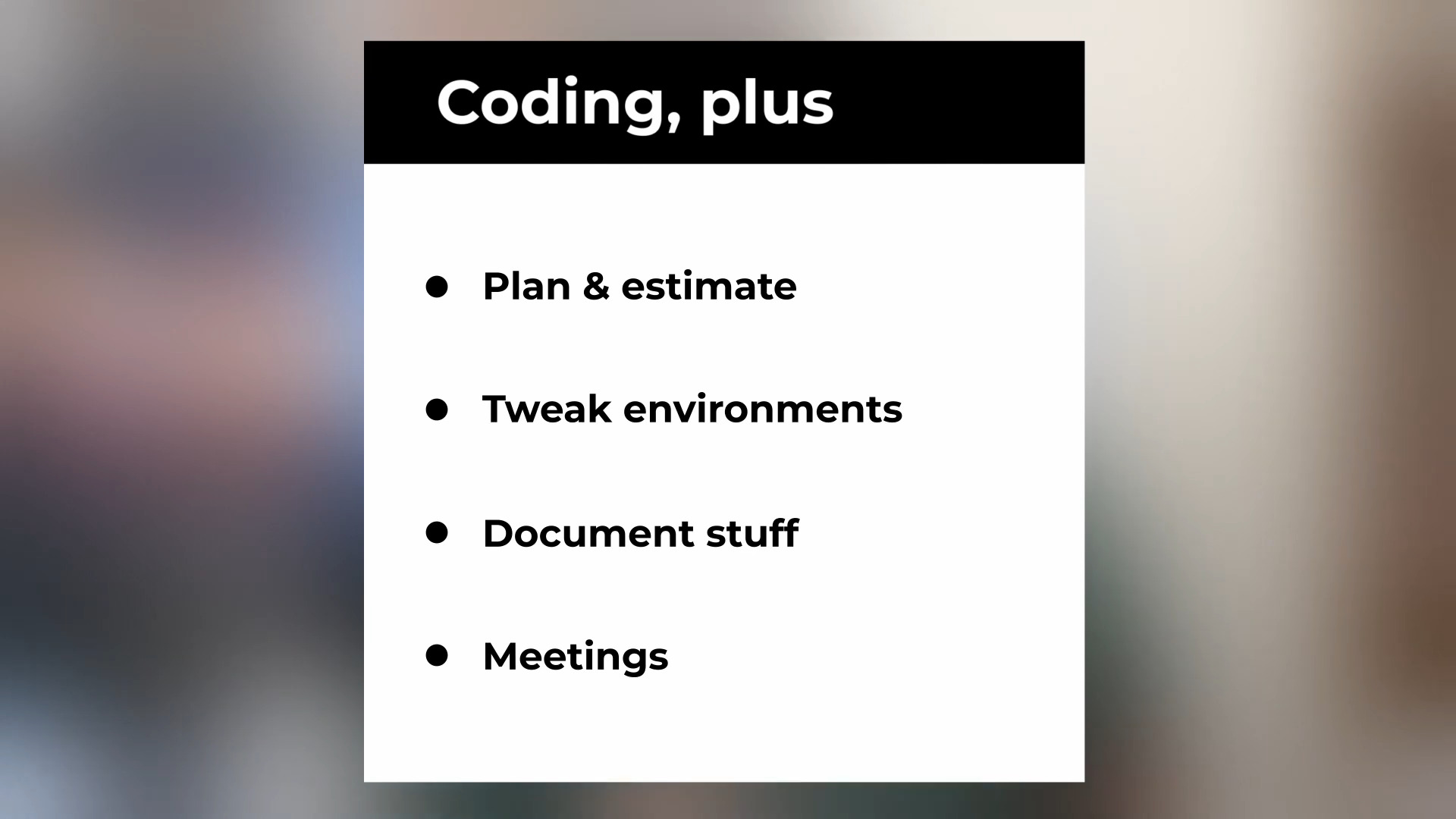
Is Coding For You?
/ 4 min read
Table of Contents
Prefer video format? Watch it on YouTube.
Software development has become one of the most sought-after career paths in recent years, but before you jump into it, it’s important to weigh the pros and cons and understand the reality of what it takes to become a successful programmer.
So, let’s start with the pros of coding as a career.
The Pros
You can enjoy a flexible work schedule and have a good work-life balance.
Firstly, coding is a high-demand job. With the increasing use of technology in various industries, the demand for skilled programmers has grown exponentially. This means that there are plenty of job opportunities available in this field.

There’s a whole bunch of people who believe that as artificial intelligence becomes more sophisticated, programming as a skill will no longer will valuable. I’m definitely not one of the doomsayers. I think rather than taking jobs away from developers, AI will more likely complement their existing skill sets as a good friend or an assistant. So, developers who learn to delegate the boring or repetitive parts to AI technologies such as ChatGPT will have that extra edge and be more productive at work.
Secondly, coding is a well-paid job. Programmers are some of the highest-paid professionals in the job market. If you have the skills and experience, you can earn a great salary and enjoy a comfortable lifestyle.
Thirdly, coding is a career that allows you to work remotely. Many software development jobs can be done from anywhere in the world as long as you have a stable internet connection. This means that you can enjoy a flexible work schedule and have a good work-life balance.
Now, let’s talk about the cons of coding as a career.
The Cons
This can be tiring and can lead to burnout if you’re not careful.

Firstly, coding can be frustrating at times. Programming is a complex process that involves a lot of trial and error. You may spend hours or even days working on a code only to find out that it doesn’t work. This can be demotivating and frustrating.
Secondly, coding can be mentally exhausting. It requires you to think critically and creatively to solve problems. This can be tiring and can lead to burnout if you’re not careful.
Thirdly, coding requires continuous learning. The technology landscape is constantly changing, and as a programmer, you need to keep up with the latest trends and technologies to stay relevant in the job market.
Now, let’s talk about the reality of coding as a career.
The Reality
Many people have the misconception that programming is all about writing lines of code. However, in reality, coding is just one part of the actual job: software engineering. It’s kind of naive to think that as a developer spinning out code is all you’ll be doing the whole day. In reality, you will be spending much more time on other related things such as planning & estimating your work, setting up & constantly adjusting your local and test environments, documenting your code, going into meetings, and much more.

Also, as a programmer, you will work with complex problems at some point, which will require plenty of logical and analytical thinking. When that happens, you will spend more time thinking than writing code.
So, Is It For You?
All said and done, is coding for everyone?
I am a strong believer in the idea that anyone can learn to code. But being a programmer suits certain personality types more than others. If you enjoy problem-solving, critical thinking, and attention to detail, you may enjoy coding as a career. However, if you’re not interested in these things, programming may be tedious and frustrating.
Conclusion
Coding can be a great career path for those who enjoy making computers work for them to solve real-world problems. It can be financially rewarding and offer a flexible work schedule. However, it requires a certain mindset and a continuous desire to learn and improve.
So, if you’re considering software development as a career, ask yourself if you enjoy problem-solving and if you’re willing to put in the effort to continuously learn and improve. If the answer is yes, then coding may be the perfect career for you.
Next
In the next video, we’ll look at the different career paths to see what excites you the most.